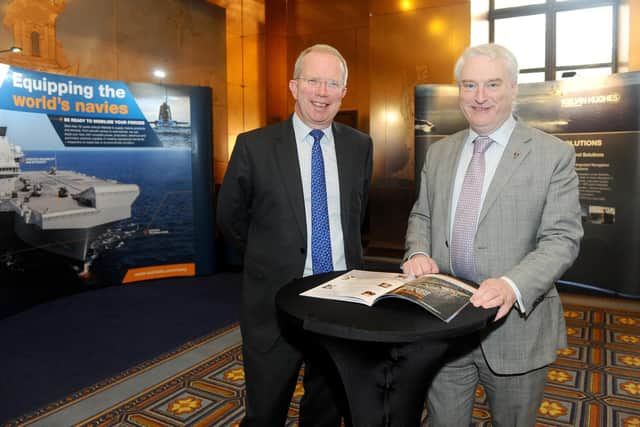Portsmouth conference welcomes expert discussion on UK’s shipbuilding ‘renaissance’


Dozens of experts from defence firms and commercial giants joined Royal Navy top brass as they laid bare Britain’s maritime economy and strategy.
During the two-day conference in Portsmouth’s Guildhall, which wound up yesterday, leading lights from the Society of Maritime Industry (SMI) focussed on the tactics Britain could use to boost its shipbuilding efforts in the coming years.
Advertisement
Hide AdAdvertisement
Hide AdA review of the Royal Navy’s own ‘master plan’ – which included the construction of two new breeds of frigates and the completion of the second super-sized aircraft carrier, HMS Prince of Wales – was given by Admiral Sir Philip Jones, the head of the Senior Service.


The navy’s fleet expansion plan was also praised by maritime chiefs, who said it had ‘kick-started’ an interest in both shipbuilding and drummed up ‘excitement’ about Portsmouth.
Brian Johnson, the UK business development for BAE Systems naval ships and maritime lead on the Solent Local Enterprise Partnership (LEP), said this resurgence of interest in the navy was key to developing the region’s maritime offering.
‘The maritime industry is looking bright here,’ he said. ‘We have got a cluster of maritime industries in the Solent which does allow us to operate in a way that few other regions in the UK can.
Advertisement
Hide AdAdvertisement
Hide Ad‘We have got defence, we have got a commercial port and cruise work around it and we have got leisure yachting. We have got those three things in this area which few other areas in the UK have.’
Mr Johnson praised Britain for its success in exporting Type 26 frigates to the likes of Australia and Canada.
International trade like this would remain ‘crucial’, he said. But Mr Johnson warned the government could not just rely on focusing work with large firms like BAE Systems of Babcock.
Instead, he and others within the SMI are looking to ‘push’ smaller businesses into the frey, spreading the work of systems and tech that ‘may not be headline-grabbing’ but was ‘vitally important’.
Advertisement
Hide AdAdvertisement
Hide AdHe added: ‘We have got a lot of opportunities in the international sector but we have got to keep proving that what we can do in the UK is world-class.
‘We need to be productive and we need to compete in the international market.
‘The responsibility of industry now is to measure up to that and make sure we have got the capacity to do what they want and make sure we’re internationally competitive.’